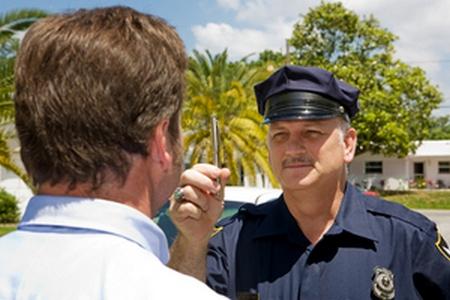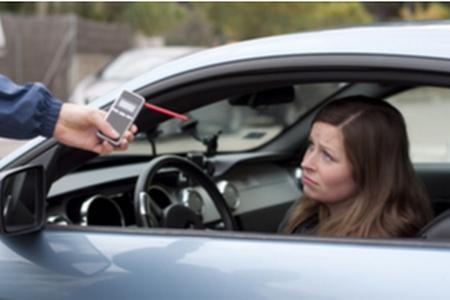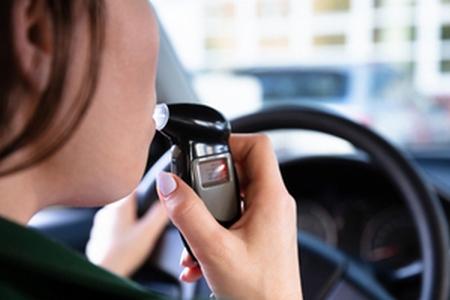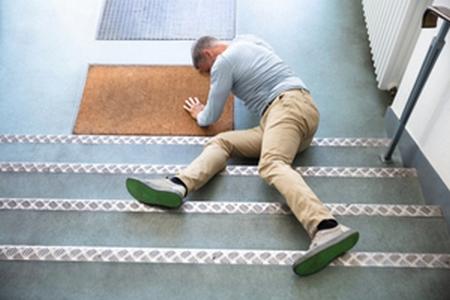Recent Blog Posts
Help! I’ve Been Accused of Child Endangerment for Running Errands With My Child in the Car
 As any parent of a young child knows, sometimes running errands while constantly buckling a tantruming or sleeping child in and out of a car seat is simply too much to ask. Frustrated and exhausted, parents will often lock a child in a car and quickly run into the grocery store or post office, complete their business, and hurry back out to find all is well.
As any parent of a young child knows, sometimes running errands while constantly buckling a tantruming or sleeping child in and out of a car seat is simply too much to ask. Frustrated and exhausted, parents will often lock a child in a car and quickly run into the grocery store or post office, complete their business, and hurry back out to find all is well.
Unfortunately, even if the parent feels the child is safe, this may result in criminal charges. Under certain circumstances, Illinois law prohibits leaving young children unattended in a vehicle because doing so can place a child at significant risk. If you have been charged with child endangerment for leaving your child in a car, read on.
Is Leaving a Child in a Car Really Child Endangerment?
Many parents, especially those living in rural areas who grew up with plenty of independence, have a hard time understanding how a cautious parent who leaves a sleeping child in a car could be guilty of child endangerment. Yet a child left alone in a car is subject to many hazards, including:
What Happens if I Carry a Gun in Will County Without a Concealed Carry Permit?
 Having a gun on your person or in your car in Illinois without a concealed carry permit is a gun crime. Illinois does not allow open carry, which is the practice of openly having a firearm in public. Therefore, in order to go anywhere with a gun outside of your home, you must have a concealed carry permit in Illinois (excluding transportation of firearms, which only requires the gun to be contained in an enclosed case).
Having a gun on your person or in your car in Illinois without a concealed carry permit is a gun crime. Illinois does not allow open carry, which is the practice of openly having a firearm in public. Therefore, in order to go anywhere with a gun outside of your home, you must have a concealed carry permit in Illinois (excluding transportation of firearms, which only requires the gun to be contained in an enclosed case).
Only people who are 21 and older, who have completed the appropriate training course, and who have a Firearm Owners Identification Card (FOID) may have a concealed carry permit, and only handguns may be concealed. While following these rules may seem onerous, they are absolutely essential for preventing criminal charges. If you have been charged with a concealed carry permit violation, you may want the help of a criminal defense attorney.
Can I Refuse a Field Sobriety Test in Joliet, Illinois?
 Being pulled over on the suspicion of driving under the influence (DUI) can create a situation where people feel the need to prove their innocence then and there. In doing so, they may think that they have no choice other than to complete a field sobriety test when prompted by the officer who pulled them over.
Being pulled over on the suspicion of driving under the influence (DUI) can create a situation where people feel the need to prove their innocence then and there. In doing so, they may think that they have no choice other than to complete a field sobriety test when prompted by the officer who pulled them over.
While the logic makes sense, in all actuality, you do not have to agree to a field sobriety test in Illinois. Many people are not aware of this, but that is often because officers do not offer up that information unprovoked because it is not in their best interest to do so.
However, knowing your rights is in your best interest, including the right to refuse a field sobriety test in Illinois.
What is a Field Sobriety Test?
A field sobriety test is often referred to as a singular test, but this is misleading as there are actually three field sobriety tests, all of which serve a singular purpose. According to the National Highway Traffic Safety Administration, there is the one-leg stand test, the horizontal gaze nystagmus test, and the walk-and-turn test.
Can I File a Lawsuit With Uber if a Driver Hits My Vehicle?
 The process of filing claims or lawsuits after a car accident can be overwhelming. When another driver hits you, the process of exchanging information, contacting a lawyer, and filing a lawsuit or personal injury claim may sound straightforward. But what do you do if the driver who hits your vehicle is an Uber driver who is on the clock? Is the process of filing a lawsuit involving a rideshare driver different?
The process of filing claims or lawsuits after a car accident can be overwhelming. When another driver hits you, the process of exchanging information, contacting a lawyer, and filing a lawsuit or personal injury claim may sound straightforward. But what do you do if the driver who hits your vehicle is an Uber driver who is on the clock? Is the process of filing a lawsuit involving a rideshare driver different?
Determining Liability in Ridesharing Accidents
To start with, it is imperative to determine liability, which is not always easy to decipher. You will have a perspective in terms of who you believe is at fault for the accident, but in order for your viewpoint to be recognized as a fact, negligence needs to be proven on part of the rideshare driver.
Not only is negligence a difficult factor to prove, but there are also opposing parties who may have different recollections as to what happened. If you have a dashcam or a nearby witness captured footage of the crash, this visual documentation of events as they unfolded is invaluable.
Drunk Driving Laws and Penalties in Illinois
 Driving while drunk is a criminal offense in the state of Illinois. As such, if you are pulled over because you have been found to be operating a motor vehicle with alcohol in your system, you could be subjected to an array of penalties for breaking the law.
Driving while drunk is a criminal offense in the state of Illinois. As such, if you are pulled over because you have been found to be operating a motor vehicle with alcohol in your system, you could be subjected to an array of penalties for breaking the law.
Illinois Laws Regarding Driving While Drunk
In Illinois, operating a motor vehicle with a blood alcohol content (BAC) equal to or greater than 0.08% is considered intoxicated per se. In other words, anyone driving a vehicle with a blood-alcohol concentration that exceeds 0.079% is considered to be driving while drunk. However, it is possible to face arrest for driving under the influence even if your BAC is under the legal limit. It is also illegal to operate a vehicle if you are impaired by prescription medications or controlled substances.
Individuals who are operating commercial vehicles, such as school bus drivers, with a blood-alcohol concentration of 0.04% are also legally drunk in the eyes of Illinois law. If you are under the age of twenty-one and operating any type of motor vehicle in Illinois, you can face penalties under the Illinois Zero Tolerance policy if your blood-alcohol concentration exceeds zero.
3 Winter Car Accident Dangers to Avoid in Joliet
 The winter months are upon us, and this is the perfect time of year for anyone who thrives in colder temperatures. From snow and sleet to ice, the winter season can be very enjoyable when you are prepared. Similarly, driving in the wintertime is manageable when you are properly equipped for the road conditions. But if you do not know what to expect and you head out on the road without preparation, you risk getting injured in a car accident.
The winter months are upon us, and this is the perfect time of year for anyone who thrives in colder temperatures. From snow and sleet to ice, the winter season can be very enjoyable when you are prepared. Similarly, driving in the wintertime is manageable when you are properly equipped for the road conditions. But if you do not know what to expect and you head out on the road without preparation, you risk getting injured in a car accident.
Invisible Ice, Snow, and Sleet on the Road
It is imperative to practice safety measures all year, but prioritizing safety is especially important during the winter months. The weather plays a key role in many seasonal accidents, particularly when it comes to sleet, ice, and snow on the road.
As a driver, not all of these conditions are easy to detect, namely black ice and sleet. It is advisable to look into proper protocol when it comes to driving along ice, sleet, or snow. For instance, do you know what to do in the moment if your car begins sliding along a sheet of ice?
Truck Accidents Caused by Spilled Cargo
 Trucks play a critical role in U.S. commerce. In fact, it could be said that if trucks ground to a halt, the American economy would grind to a halt as well. Although the economic benefit is undeniable, there are negative externalities to having so many large trucks on the road. For example, thousands of Americans are injured or killed in large truck accidents annually. Of course, many of these crashes involve a truck colliding with another vehicle. However, in other instances, the damage is not caused by the rig itself, but by what is inside of it. Semi-truck cargo spills are responsible for serious traffic accidents on Illinois roads every year. When a truck loses the cargo it is hauling, the potential for destruction is immense. The cargo could pose a hazard to other vehicles, and the truck may become imbalanced and either tip over or enter a jackknife. Victims are often left with debilitating injuries and may take months or even years to recover from. Additionally, they could face other obstacles, like medical debt and job loss. Although their circumstances are often dire, they may have legal recourse if the crash was a result of negligence or wrongdoing.
Trucks play a critical role in U.S. commerce. In fact, it could be said that if trucks ground to a halt, the American economy would grind to a halt as well. Although the economic benefit is undeniable, there are negative externalities to having so many large trucks on the road. For example, thousands of Americans are injured or killed in large truck accidents annually. Of course, many of these crashes involve a truck colliding with another vehicle. However, in other instances, the damage is not caused by the rig itself, but by what is inside of it. Semi-truck cargo spills are responsible for serious traffic accidents on Illinois roads every year. When a truck loses the cargo it is hauling, the potential for destruction is immense. The cargo could pose a hazard to other vehicles, and the truck may become imbalanced and either tip over or enter a jackknife. Victims are often left with debilitating injuries and may take months or even years to recover from. Additionally, they could face other obstacles, like medical debt and job loss. Although their circumstances are often dire, they may have legal recourse if the crash was a result of negligence or wrongdoing.
How Blood Alcohol Ignition Interlock Devices Work in Illinois
 Penalties for driving under the influence (DUI) in Illinois often include the loss of the driver’s driving privileges. A driver’s license suspension or revocation can make it difficult to get to work and fulfill other important responsibilities. Fortunately, some drivers are able to regain their driving privileges and get back on the road safely. To do so, they may be required to install a blood alcohol ignition interlock device (BAIID).
Penalties for driving under the influence (DUI) in Illinois often include the loss of the driver’s driving privileges. A driver’s license suspension or revocation can make it difficult to get to work and fulfill other important responsibilities. Fortunately, some drivers are able to regain their driving privileges and get back on the road safely. To do so, they may be required to install a blood alcohol ignition interlock device (BAIID).
To start the car, they must register their blood alcohol content (BAC) using a breathalyzer attached to the BAIID. If their BAC is too high, the BAIID will prevent the car from turning on.
When Is a BAIID Required?
A license suspension usually follows a DUI. With most suspensions lasting a minimum of one year, courts understand that being unable to drive for such a lengthy period of time may cause some defendants undue hardship. For this reason, some defendants are granted the opportunity to apply for a Restricted Driving Permit (RDP), which allows them to drive the duration of the revocation period.
Premises Liability: Understanding the Distraction Exception to the Open and Obvious Rule
 Property owners have certain obligations under Illinois Law. They must create a safe environment free of dangerous conditions for all who enter the premises. If a visitor is injured by a hazard on their property, they may be liable under Illinois premises liability law.
Property owners have certain obligations under Illinois Law. They must create a safe environment free of dangerous conditions for all who enter the premises. If a visitor is injured by a hazard on their property, they may be liable under Illinois premises liability law.
There are ways the property owner can escape liability. If the hazard can be considered “open and obvious”, the property owner may not be at fault. The property owner may argue that the victim should have been aware of the dangerous condition and avoided injury. However, the open and obvious rule has its own exception called “the distraction exception.”
What Is the Distraction Exception?
The distraction exception creates a cause of action against the property owner, even if the victim was injured by a hazard that was “open and obvious.”
For the rule to apply, the plaintiff must have been distracted by something else on the property. The distraction cannot be of the plaintiff’s own making. For example, if someone was harmed because they were staring at their phone while walking down the stairs, the property owner may not be liable.
Exposed to Toxic Chemicals at Work? You May Qualify for Workers’ Compensation
 According to the Bureau of Labor Statistics, over 2 million people are injured at work every year, and over 1 million people will miss work because of a workplace injury.
According to the Bureau of Labor Statistics, over 2 million people are injured at work every year, and over 1 million people will miss work because of a workplace injury.
Most of these injuries are caused by falls, slips, and collisions. However, some incidents are much more subtle; in fact, thousands of workers suffer serious harm just breathing the air around them. The culprit? Toxic gases and chemicals.
Despite advances in safety precautions and more stringent regulations, thousands of workers suffer health complications due to chemical exposure annually. According to the National Safety Council, harmful substances were responsible for over 30,000 non-fatal injuries and over 600 fatalities.
Most Prevalent Toxic Chemicals
According to the Bureau of Labor Statistics, the most dangerous workplace chemicals (by number of fatal incidents) were:
 815-727-0100
815-727-0100













